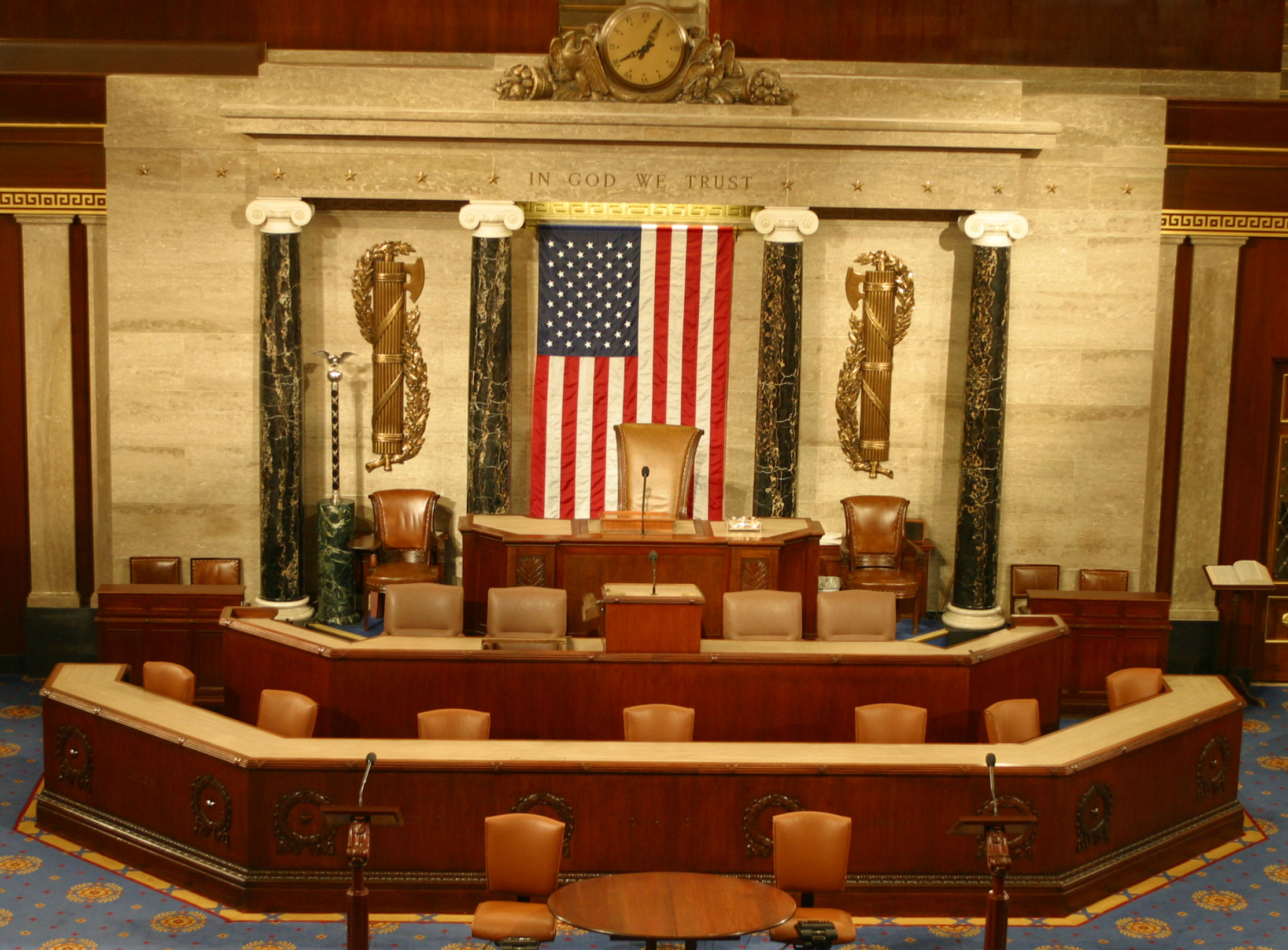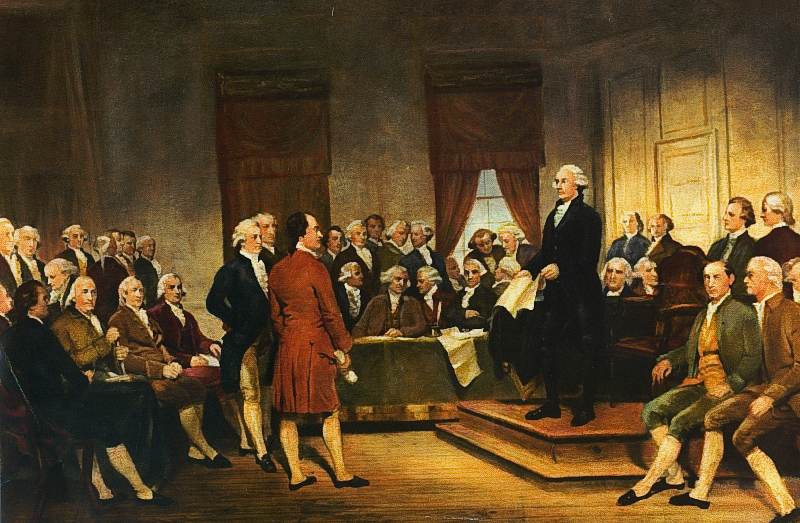Debates Are No Substitute for Politics

Last week, the first Ahmari-French debate about the relationship between Christianity and American politics in the coming generation took place at the Catholic University of America, moderated by the softest-spoken conservative intellectual, Ross Douthat. This is the most important debate among social conservatives in recent years and yet it is strangely marginal, reflecting the marginalization of Christianity in public discourse and the culture.
Ahmari’s argument is that Christians need to focus on two things not previously taken very seriously. First, the Democrat party is now ideologically inimical to Christianity. He cites presidential contender Senator Kamala Harris, who has accused traditional American organizations like the Knights of Columbus of being some kind of menace for hewing to Christian teachings on sexual morality. He might have added the example of the other Senator from California, Dianne Feinstein, attacking Judge Amy Barrett’s Catholic faith in a confirmation hearing and implying it rendered her unfit for a seat on the federal bench.
Second, Ahmari claims, the proper way to fight this ideology goes beyond the legal cases where French’s First Amendment advocacy has shined. Christian Americans need to act politically, including using whatever state powers are available to defend Christian opinions about the common good. His most serious point about how conservatives think and argue is that we have given too much influence to lawyers, who in our era are not particularly suited to thinking about politics.
Putting the two points together, we see Ahmari saying America is facing regime change: Elite liberals will not be satisfied with a state-church separation, but will instead try to destroy Christianity by compelling surrender on all moral questions. He not only cites their use of the federal judiciary, but also the recent establishment of “woke capital”. Progress advances coherently, politically, at a level where it has not yet even been met, much less bested.
The liberation agenda moves from tolerance to compulsory affirmation—and gay marriage immediately leads to transgender issues and whatever comes next. Indeed, we can start betting on what that might be…. Whether it is majority opinion or minority opinion, elite liberalism keeps fighting and so far it has won every question it has contested, Ahmari says. Defensive measures, like arguing cases—though necessary—are insufficient. It’s time to take the offensive.
Unfortunately, at this point wit fails Ahmari. The only measure he suggests is that Senators Josh Hawley and Tom Cotton should hold hearings about why public libraries are hosting Drag Queen Story Hour. One is embarrassed to point out to the man that his means and ends are radically mismatched! The only issue Ahmari, French, and Douthat agreed on was that porn is neither moral nor constitutionally protected (save in mid-century liberal jurisprudence). Ahmari declares he’s for banning things and complains his toddler could reach hardcore porn in a few clicks—why, then, does he not campaign for a porn ban? Does his courage falter because it’s a foregone conclusion that ridicule would overcome him before defeat in the court of public opinion?
Opinions Are Meant to Lead to Actions
Since his first broadside in May, Ahmari has not thought it prudent to come up with a manifesto. He talks about politics, but his aim is opinion, not action. This seems to be why he attacked French, a very easy target, in the first place. French’s answer to porn is simply that the market has spoken. This makes Ahmari’s case: more serious social conservatives are needed, conservatives who would act constitutionally—but who do want to act politically.
Further, French doesn’t seem to realize he’s a defender of a status quo lacking in defenders—public discourse and the culture are against pretty much everything he stands for under the rubric of classical liberalism, Left and Right. By the time Ahmari says he wouldn’t trust a President French as much as he does Trump, and then questions French’s courage because he volunteered during the war in Iraq in JAG, not the infantry, the point is already obvious. This is about generational change driving partisan change.
Ahmari was born in 1985, French in 1969—the one speaks up for the anger of the youth and the desire for change, just as the other speaks up for waiting things out, thinking about the long term, and worrying more about rash action than inaction. French points to all the victories for freedom of religion in recent decades—Ahmari points to the culture war defeats, like gay marriage. Both are right here, so the question is who’s pointing to the more important problem and who can persuade a larger audience.
In trying to judge them, we should remember that truly political opinions are intended to lead to action. Yet the debate never got around to Roe v. Wade, long the most important issue for social conservatives. Perhaps they’re all agreed on repeal, since they take the time to lament the deaths of innocents. Still, Roe’s a great example of the distance between opinion and action. The GOP’s failure to repeal Roe is the signal of its contempt for social conservatives, who are, if not utterly irrelevant in politics, at least easily taken for granted. Can we take any principled people or statements seriously without first being serious about this matter?
Both men seem to be good Christians and claim to be serious about politics, which often comes with great difficulty for Christians. Ahmari prophesies big political changes coming soon and wants to join the fight to make sure America will be friendlier to Christianity. But without a vision of what those changes are and how to influence them wisely, he has remarkably little to offer to those who think he has the better argument. For a man dissatisfied with the way things are and what they portend, Ahmari should have serious things to say about what he proposes we do.
Ahmari is lucky that his opponent is politically incoherent. French claims at one point that Trump will cause a national backlash and a Progressive electoral victory which will be catastrophic for social conservatives: as bad as Reagan succeeding Carter was for liberals. What should follow from that is the most serious possible action on behalf of social conservatives—through Trump, since the deed has been done. But French has done nothing of the kind since 2016, contemplates no such thing now, and does not even seem to see that it follows from his claim.
The reason for this appears at another point, where French claims Progress—a President Sanders, for example—isn’t such a worry for Christians. This brings us back to the status quo he wishes to defend, which forces him to assume Progressives are joking about the various ways they want to outlaw Christianity. His only remark about political strategy is that we should trust Mitch McConnell to block a Progressive president. But that would just bring us back to the GOP and therefore Trump 2020—French dares not see he needs the man he most abhors in American politics.
An Issue of Justice
So at the end of the first debate, we’re stuck with Ahmari, who seems serious about political change, but will not match any means to the ends he describes, or French, who half-heartedly denies any big institutional change is coming through our partisan conflicts, even as he fears these conflicts may do damage to the legal order.
The debate therefore clarifies nothing except that Ahmari is serious when he says he doesn’t think too much of civility—he questioned French’s manliness gratuitously, knowing that this would please one audience even if it angers another. Personal attacks are the future and Ahmari is a kind of Twitter journalist. And French really cannot understand any alternative to the very ephemeral institutional arrangement he defends, as he says, so he calls proposals for changes to “viewpoint neutrality” jurisprudence stupid. We need better debaters if we’re going to get any grasp on events.
For now, we have only two portraits to study. Ahmari never mentions having done or planning to do anything for the common good, but he speaks confidently, indeed harshly. He feels no particular allegiance to obtaining arrangements and astutely points out that the American legal order was very different before mid-century liberalism and far better for Christianity. French has accomplished much as a lawyer, and served in war, but seems completely blind in politics, stunned by 2016 and unlikely ever to regain his vision. He cannot appeal to his expertise without being condescending—as though lawyers had any authority in politics, never mind barrister French.
We seem to have no way to achieve clarity without conflict, so let us hope clarity will further the common good. These two types of pundits will increasingly fight over daily political scandals, until we clarify the issue of justice: Where Christians fit in America. Social conservatives, unlike libertarians and foreign policy conservatives, can appeal to justice in a way that unites a coalition even as it divides Americans between liberals and conservatives. But as yet no one is willing to make this case, either with a view to 2020 or with a view to the next generation. Neither intellectuals nor pundits have much to say to their audience, much less the electorate. We must hope that the next debate, to be held at Notre Dame with the happy addition of Charles Kesler, will show marked improvement so far as politics is concerned.
The American Mind presents a range of perspectives. Views are writers’ own and do not necessarily represent those of The Claremont Institute.
The American Mind is a publication of the Claremont Institute, a non-profit 501(c)(3) organization, dedicated to restoring the principles of the American Founding to their rightful, preeminent authority in our national life. Interested in supporting our work? Gifts to the Claremont Institute are tax-deductible.
Root, root, root for the electors. If they don't win it's a shame.
Part I: Unfettered reason cannot conserve anything.






